Events
| Name | organizer | Where |
|---|---|---|
| MBCC “Doing Business with Mongolia seminar and Christmas Receptiom” Dec 10. 2025 London UK | MBCCI | London UK Goodman LLC |
NEWS
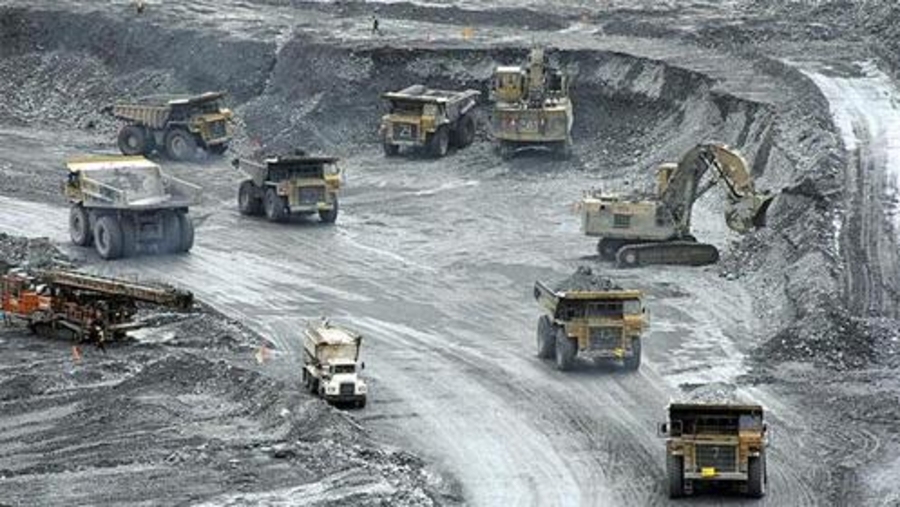
Mongolia exports over 11 mln tons of coal in first 7 months www.xinhuanet.com
Mongolia exported 11.1 million tons of coal in the first seven months of this year, data from the Mongolian Customs General Administration showed Tuesday.
The figure marks a year-on-year increase of 11.2 percent, the data showed.
Coal is the main export commodity of Mongolia, which is rich in natural resources.
The landlocked Asian country has planned to export at least 36 million tons of coal in 2022, according to the Mongolian Ministry of Mining and Heavy Industry.
The country exported 15.9 million tons of coal in 2021, down 44.3 percent year on year.
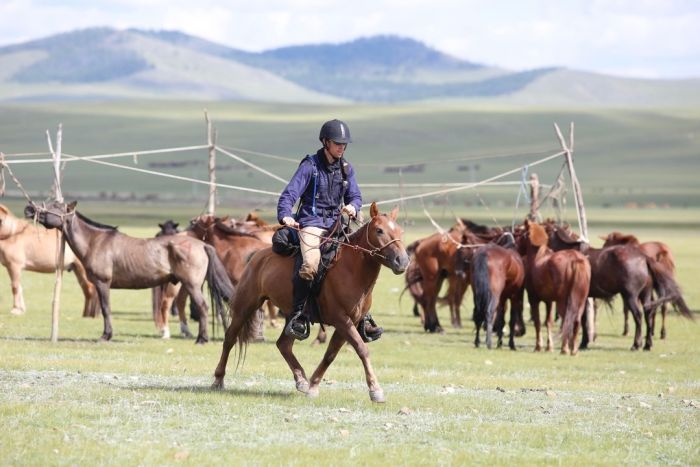
Jess Di Pasquale and Natalie Bell are in Mongolia to take part in the world's longest and toughest horse race, the 1000km Mongol Derby www.katherinetimes.com.au
Two Territory riders have travelled halfway around the world to compete in the world's longest and toughest horse race.
Set to cross the start line on Wednesday, Katherine's Jess Di Pasquale and Darwin-based Natalie Bell, will be competing in the Mongol Derby, a gruelling ten-day horse race across 1000km of Mongolian wilderness.
The race aims to recreate a legendary part of Mongolian history: In 1224, Genghis Khan established the world's first long-distance postal transmission system, using a large network of horse stations spaced from Kharkhorin to the Caspian Sea.
Changing their horses every 40km, riders - who travel from all over the world to take part in the race - will be living with herders or camping under the stars along the way.
They are allowed to carry only a 5kg of essential survival kit and the navigation between the 25 horse stations will be up to the riders alone as there is no marked course.
Combining survival skills and horsemanship, competitors will need an extra level of determination and sometimes sheer luck to make it to the finish line or even take out the win.
"We trained as much as we could," Mrs Di Pasquale said.
"It was hard fitting it in around life, work and family, but we rode every chance we had, got several long distance endurance rides in and tested and trialled our gear within an inch of its life."
But the experienced rider, who has followed the race for a long time, said it wasn't lack of preparedness she was worried about, but her navigation skills.
"We are both sh***ing ourselves to be brutally honest," she said.
"I think the navigation will be the hardest part.
"Hopefully we don't end up in Russia or China."
Using the race as a challenge after having two children, Kace (5) and Primrose (2), Mrs Di Pasquale said together with her friend - and former Pony Club rival - Natalie Bell, she also wanted to raise money for two good causes: Steppe and Hoof, an organisation that supports Mongolian herders, and cancer charity Sock it to Sarcoma.
"One of our friends who used to ride with us at pony club died from one of the rarest forms of sarcoma in 2017," she said.
"If she was still here (the Mongol Derby is) definitely something she would be keen on doing as well."
Ms Bell added while she joined the challenge to test and push herself to see how 'tough and resilient can I be when I really needed to dig deep', it was the memory of her late friend that encouraged her to enter the race.
"It is a chance for me and Jess to keep Stevie's memory alive, to pay tribute to her fight and how brave she was though her fight, and her zest and passion for life to be everything you make it," she said.
"We will be riding in recognition of our Stevie girl, who fought a battle tougher than any steppe, and who would've been our third musketeer on this adventure."
The two Territorians started their training days in the Mongolian Steppe yesterday, with the actual race starting on Wednesday. Those interested can follow their adventure here.
In 2017, Katherine's Jodie Ward finished in equal sixth place in the Mongol Derby.
BY: Annie Hesse Northern Territory Correspondent
I am an award-winning media and communications professional with experience across print, digital, social and radio broadcast, as well as photography and videography. I am the NT Correspondent at Australian Community Media and I write for my hometown newspaper, the Katherine Times. I love telling people's stories, and I am passionate about giving those a voice who may otherwise remain unheard. When I am not busy putting pen to paper, I spend time in my garden, go bushwalking or travel across the Northern Territory, Australia or the world. In my spare time I write, illustrate and publish books.

Mother Teresa Gold Coin 1000 Togrog Mongolia 2022 www.powercoin.it
This beautiful Gold coin is dedicated to the Angel of Mercy, a woman who helped many poor people: Mother Teresa. The coin comes in a capsule, along with a Certificate of Authenticity. Limited mintage of 5.000 pieces worldwide.
79.95 €
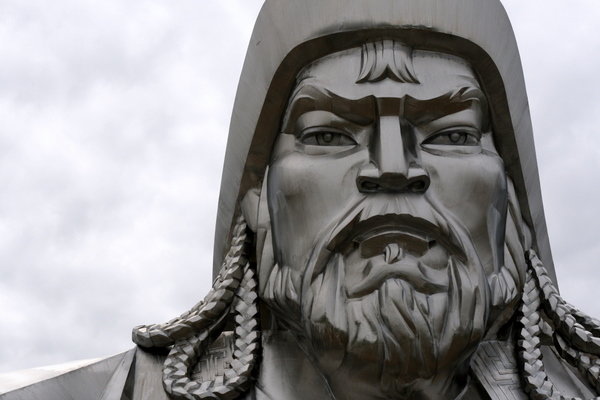
The War in Ukraine: Lessons for Mongolia www.thediplomat.com
“For the small nations,” reminded Czech-born writer Milan Kundera, “existence is not a self-evident certainty but always a question, a wager, a risk.” Nothing in recent memory reminded Mongolia of this vulnerability more than the war in Ukraine.
Surrounded by Russia and China, with a population of only 3.5 million, Mongolia is deriving many hard lessons from watching Ukraine. Such lessons learned by smaller countries will shape global affairs in the years to come.
Mongolia’s extreme geographic constraints mean that when it comes to foreign policy matters Ulaanbaatar usually has to first consider its two neighbors’ positions. But this approach inevitably delays Mongolia’s foreign policy formulation. In the age of social media, losing time means losing the narrative. Mongolia’s government has to learn to be proactive in its communication and stay ahead of the narrative. Otherwise, there is a risk of public opinion not accurately reflecting Mongolia’s foreign policy.
In the case of the war in Ukraine, Mongolian Minister of Foreign Affairs Battsetseg Batmunkh didn’t publicly communicate Mongolia’s call for a peaceful resolution of the conflict until March 2 – almost a week after the invasion. Even then, the message was not replicated in English.
Globally connected and socially conscious, Mongolian youth didn’t take the delay lightly. Mongolian social media is awash with criticisms of the government’s perceived inaction in advocating for Ukraine.
On the other hand, Mongolia had sent humanitarian assistance to Ukraine and did abstain from voting on a U.N. resolution demanding the withdrawal of Russian troops (rather than voting against the resolution). Although these measures are not enough by any means, they are significant considering the fact that Russia has almost total control of Mongolia’s energy supply and has been relentlessly pressuring Mongolia to support its war.
The communications shortcomings of the Mongolian foreign policy establishment are compounded by near absence of respected Mongolian voices in the international media. Except for one op-ed by then-prime minister in 2005 in The Washington Post, almost no Mongolian has published an op-ed in a major opinion-shaping publication, such as The New York Times or the Financial Times.
This is a serious gap that one can even argue has national security implications. Ukrainians are expertly deploying international media to inform the world about their plight. Mongolians are only now starting to realize the importance of being able to effectively make their case to an international audience.
Dwarfed by outsized military powers, Russia and China, for the past 30 years, Mongolia saw little need to spend much taxpayer money on its military. But the war in Ukraine is teaching Mongolians a different lesson: No one can predict the future, and Mongolia should be ready for any situation.
On July 10, State Flag Day, Mongolia’s government held probably the biggest annual military parade in 30 years. Judging by the enthusiasm and fanfare of the Mongolian public, there seems to be little resistance to this increased focus on military.
As noted by many international experts, a lot of Ukraine’s success can be attributed to their highly skilled and decentralized forces. Just like the Ukrainian military of 2014, Mongolia’s military still operates in the same old Soviet top-down culture.
But during the past eight years, Ukraine managed to empower their NCOs and gave more autonomy to small units. If the Mongolian army is serious about repelling external threats and internal instability, it has to undergo the same revamping of organizational culture. Given its limited size and resources, Mongolia has no choice but to rely on independent smaller units.
For various historical and geostrategic reasons, many Mongolians believe that Russia is the only country that could provide a security guarantee to Mongolia. But the Russian leadership’s recent unfounded claim that Mongolia hosts American bioweapons labs and Russia’s evident military shortcomings in Ukraine are making Mongolians question Russia’s desire and ability to guarantee stability in the region.
Mongolia is in the midst of figuring out its place in the changing world order. This process requires a delicate balancing act. On the one hand, as the only functioning democracy in the entire Eurasian heartland, Mongolians can deeply relate to Ukrainians’ desire to live in a democratic and prosperous society.
On the other hand, Mongolians are also realizing that should anything happen to Mongolia, the country will be on its own. No Western country could provide a security guarantee to Mongolia. Russia and China will not go away from the neighborhood, and one way or the other, Mongolia will have to peacefully coexist with them.
The lessons that smaller countries are deriving from the war in Ukraine are unique to their own circumstances. But the one unifying theme is increased self-reliance. Creatively circumventing constraints and making themselves indispensable to the global community are the key for small states. The war reminded Mongolians that they now have no choice but to prepare for all eventualities.
GUEST AUTHOR
Tuvshinzaya Gantulga
Tuvshinzaya Gantulga is a non-resident fellow at the Institute of Strategic Studies of Mongolia. He previously worked as a foreign policy aide to the president of Mongolia and served in Afghanistan as a member of the Mongolian army contingent.
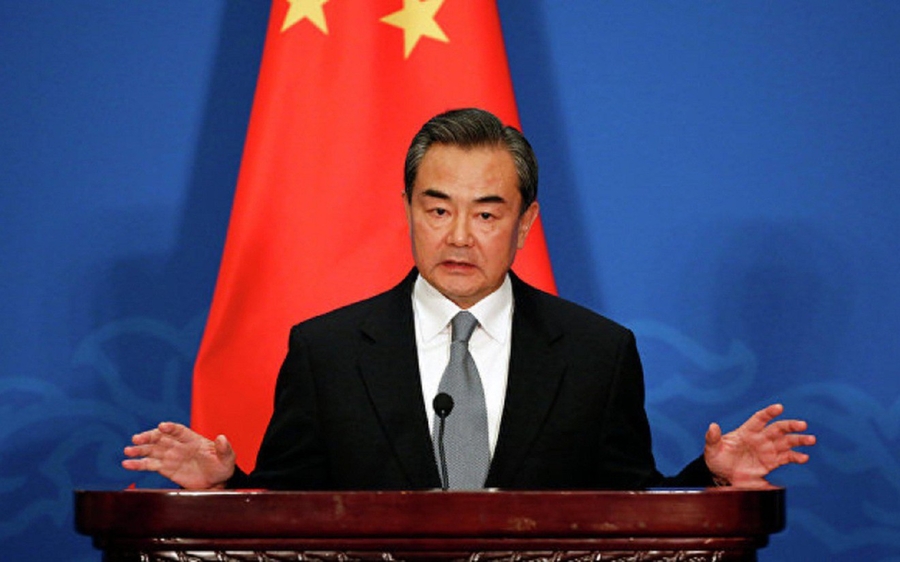
China, Mongolia reach broad consensuses on strengthening ties www.xinhuanet.com
China and Mongolia have reached a wide range of consensuses during the visit of Chinese State Councilor and Foreign Minister Wang Yi to Ulan Bator on Sunday and Monday.
When meeting the press together with Mongolian Foreign Minister Battsetseg Batmunkh after holding talks here on Monday, Wang said that he has witnessed encouraging changes in Ulan Bator since his last visit two years ago and felt the vitality of the vast grassland.
As a friendly neighbor, China is truly glad to see the rapid progress made by Mongolia and is full of expectations for its development and revitalization, he added.
Wang expounded on the consensuses reached by two sides during his visit.
Both countries believed that in the face of the current complicated and ever-changing international and regional situation, China and Mongolia are closely connected with a shared future so they should be good neighbors more valuable than gold, good brothers sharing weal and woe and good partners striving for common development.
The two sides are willing to deepen the three alignments between the Belt and Road Initiative and Mongolia's Prairie Road development strategy, the Global Development Initiative and Mongolia's New Revival Policy, and China's "two-stage" strategic plan and Mongolia's long-term development policy, so as to create three engines for further development of bilateral relations.
Both sides reaffirmed respect for each other's independence, sovereignty and territorial integrity, and firm mutual support on issues regarding each other's core interests.
China supports Mongolia in maintaining stability, focusing on development and exploring a development path in line with its national conditions. China appreciates that Mongolia reaffirms its commitment to the one-China principle and opposes interference in China's internal affairs concerning Taiwan, Tibet, Xinjiang and Hong Kong, among others.
The two sides agreed to strengthen cooperation at the border, and facilitate the reopening of ports and connection of railways and highways to the largest possible extent so as to keep the industrial and supply chains stable and unimpeded.
The two sides signed a memorandum on cross-border railway transportation at the Gants Mod port, which will play an important role in helping Mongolia expand its opening-up and achieve strong growth.
The two sides agreed to promote cooperation in such fields as economy and trade, investment, mining and energy, science and technology, agriculture and animal husbandry, build major demonstration projects in areas including infrastructure and energy, and strive to achieve coordinated development and common prosperity.
China and Mongolia pledged to push ahead with the construction of the Erdeneburen hydropower plant in a coordinated manner and work faster to address the electricity supply for people in western Mongolia.
The two countries voiced their support for the early implementation of livelihood projects including renovating shanty-town areas, and building sewage treatment and meat processing plants.
The two sides will enhance cooperation in afforestation and desertification control. China appreciates Mongolia's plan to plant one billion trees and China has also proposed planting 70 billion trees in the next 10 years. China hopes that the two countries support each other in greening their homeland and safeguarding the green land and blue sky.
China and Mongolia also agreed to continue the cooperation to fight against the COVID-19 pandemic and protect lives. They will increase direct flights between the two countries to facilitate personnel exchanges. China supports Mongolian students in returning to China to resume classes at an early date. They agreed to strengthen youth exchanges and sub-national cooperation to consolidate bilateral friendship.
The two sides agreed to strengthen coordination in international and regional affairs, uphold true multilateralism and open regionalism, push forward the implementation of the Global Development Initiative and the Global Security Initiative, safeguard the common interests of developing countries, so as to jointly promote the development and prosperity of Asia and build a community with a shared future for mankind.
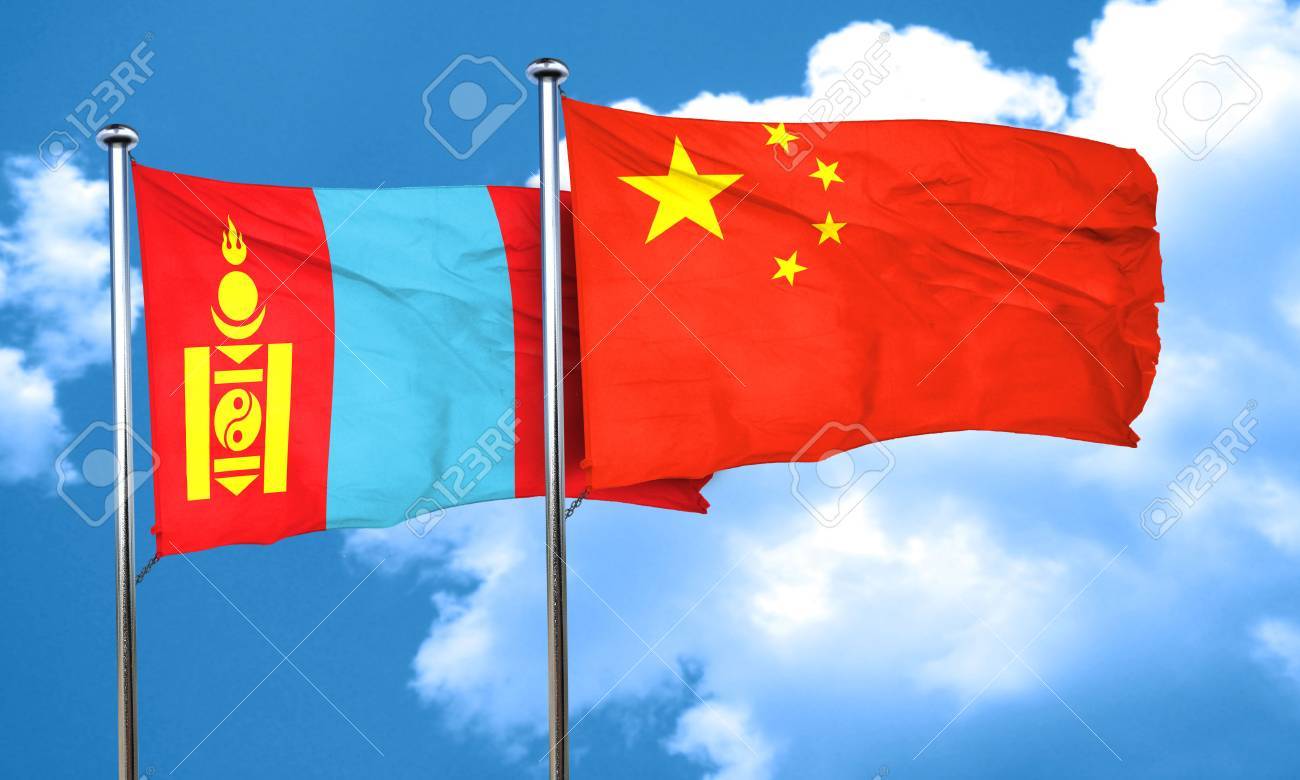
Mongolian Prime Minister Luvsannamsrai Oyun-Erdene Meets with Wang Yi www.fmprc.gov.cn
On August 7, 2022 local time, Mongolian Prime Minister and Chairman of the Mongolian People's Party Luvsannamsrai Oyun-Erdene met with State Councilor and Foreign Minister Wang Yi in Ulaanbaatar.
Oyun-Erdene asked Wang Yi to convey his sincere greetings to Chinese leaders and thanked China for providing vaccines and other anti-pandemic materials to Mongolia to help the country safeguard the health and well-being of its people, which fully demonstrates that a friend in need is a friend indeed. Mongolia follows a policy of giving priority to neighbors, regards China as a good neighbor that is more valuable than gold, and expects to work with China to seek greater synergy between development strategies to advance bilateral cooperation in various fields at an accelerated pace. The Mongolian People's Party has also just celebrated the centenary of its founding. He wishes the 20th National Congress of the Communist Party of China (CPC) a complete success and hopes to strengthen exchanges with the CPC at a new starting point to draw on its experience in party governance and state administration.
Oyun-Erdene stressed Mongolia's firm belief that all countries' independence, sovereignty and territorial integrity, as well as their own choice of development path, should be respected. Mongolia firmly supports the one-China principle and opposes external interference in China's internal affairs such as Taiwan, Xizang, Xinjiang and Hong Kong. China is a responsible major country representing the future of Asia, and China's development serves the common interests of all Asian countries. Mongolia firmly supports the further development and growth of its friendly neighbor China and hopes to realize common development and prosperity with China.
Wang Yi conveyed Chinese leaders' sincere greetings to Prime Minister Oyun-Erdene. He said that China and Mongolia are linked by mountains and rivers and the only right choice for us is peace, friendship, mutual benefit, mutual understanding and mutual support. China appreciates Mongolia's adherence to the one-China principle and its support for China's efforts to safeguard core interests. China also respects Mongolia's independence, sovereignty and territorial integrity, supports Mongolia in choosing a development path suited to its national conditions in accordance with the will of its people, and backs Mongolia's efforts to maintain stable governance and focus on development.
Wang Yi said that China has always stayed committed to the principle of amity, sincerity, mutual benefit, and inclusiveness in its neighborhood diplomacy, has always accommodated its neighbors' comfort level, and has always been ready to share China's development opportunities. China puts advancing friendly cooperation with Mongolia in an important place in its neighborhood diplomacy. No matter how China may develop in the future, this policy will not change. As a Chinese saying goes, "If brothers are of the same mind, their sharpness can cut through metal". China is ready to work with Mongolia to seek greater synergy between the Belt and Road Initiative and the Steppe Road Program, between the Global Development Initiative and Mongolia's new revival policy, and between China's "two-step" development strategy and Mongolia's long-term development vision, so as to create three engines of development for bilateral relations and inject strong impetus into the mutually beneficial and friendly cooperation between the two countries.
The two sides had in-depth exchanges on experience in governance and development, and plans for practical cooperation in the next stage. Both sides agreed to maintain high-level and party-to-party exchanges, remain focused on achieving lasting greatness for the two Parties, both in their 100s, and accelerate respective development and revitalization. The two sides will promote the development of ports and corridors, improve the efficiency of customs clearance, forge major demonstration projects in infrastructure and energy, among others, and strengthen youth exchanges and sub-national cooperation. Wang Yi said that the economies of China and Mongolia are highly complementary, and China is ready to help Mongolia turn its resource endowment into development advantages and tangible development outcomes.

How a Tax Victory in Mongolia Is Also a Major Win in the Fight Against Poverty www.globalcitizen.org
At least $1.36 billion in evaded taxes was recovered by governments thanks to the Panama Papers leak of 2016, which unearthed millions of financial documents from the law firm Mossack Fonseca. An even bigger investigation into tax evasion is underway following the emergence of the Pandora Papers in October 2021.
Leaks like these show the complicated lengths that companies and ultra-wealthy people go to avoid paying taxes. They’re a gift to governments trying to crack down on the illicit practice, but tax agencies can’t simply wait for the next leak to shed light on prevailing routes of evasion.
Instead, they have to engage in time- and resource-consuming audits based on educated guesses or through random selection. In any given year, only a sliver of potential tax fraud can be investigated. When tax agencies are understaffed and underfunded, it becomes harder to carry out successful audits.
So it was a big deal when Mongolia — not long after a financial crisis — announced that it had recovered $228 million in owed taxes from a multinational mining giant in 2019.
The case happened to be the initial fruits of a campaign to strengthen the country’s tax system through a collaboration with the Organization of Economic Cooperation and Development, the United Nations Development Programme, and other groups.
The successful outcome shows that curbing tax evasion can facilitate the global fight against poverty.
3 Key Things You Should Know About Mongolia’s Tax Win
Mongolia recovered $228 million in evaded taxes from the mining company Turquoise Hill and prevented the company from writing off $1.5 billion in taxes going forward.
If the $228 million was collected at the time it was owed, Mongolia could have doubled its spending on health care and education.
Global tax evasion costs countries more than $500 billion annually, with developing countries losing more than $100 billion. This deprives governments of money that would otherwise be spent on education, health care, transportation, electricity, shelter, and other services.
What Happened in Mongolia?
Mongolia is sometimes referred to as “Mine-golia” because the country possesses trillions of dollars worth of copper, gold, silver, and coal deposits, along with other minerals.
Despite having opened up its natural resources to multinational corporations for decades, the country has yet to reap the rewards. In fact, nearly one-third of Mongolians live in poverty, while another 15% are perilously close to falling below this line. An estimated 65% of families struggle with food insecurity and the government spends less than half the global average on health care.
In 2009, the Canadian mining company Turquoise Hill, which is owned by the conglomerate Rio Tinto, signed an agreement with the Mongolian government to manage and operate the Oyu Tolgoi mine, one of the world’s largest sites of copper and gold.
Mongolia would get a portion of sales generated from Oyu Tolgoi’s minerals, while also raising money through taxes on Turquoise Hill. If all things went according to plan, this revenue could boost public spending on things like education, health care, and poverty reduction.
But the mine failed to yield much financial benefit for the government over the next several years, despite Turquoise Hill eventually announcing more than $1 billion in annual revenue from the project.
Even when accounting for the loans Turquoise Hill provided to finance Mongolia’s share of the construction costs, things didn’t seem to add up. So Mongolia enlisted the help of various international tax groups to “modernize its legal framework, build capacity to tackle complex tax schemes and to implement the international standards on transparency and exchange of information (EOI) for tax purposes.”
One thing was clear from the start: Mongolia’s tax agency was underfunded, understaffed, and lacked the expertise to effectively oversee multinational corporations.
So the partnership first advised the government on how to build and staff tax departments dedicated to compliance, audits, and specific tax rules. Once these teams were in place, international experts trained members to look for, gather, and analyze different types of information.
In particular, they provided guidance on how to carry out transfer pricing audits, which is what ultimately led to the $228 million settlement. Transfer pricing is when a company sells goods or services to related divisions or companies under the same ownership umbrella at a manipulated price, or funnels revenue through a subsidiary set up in a tax shelter.
Carrying out a transfer pricing audit can take up to 18 months of rigorous work as auditors look through a company’s financial records, organizational charts, and other documents and gain access to international lending databases.
The Mongolian audit found that Turquoise Hill had funneled money related to Oyu Tolgoi through shell companies in the Netherlands and Luxembourg to heavily reduce its tax burden. The evidence was so cut-and-dry that the tax bill of $228 million was paid soon after it was brought to light.
With so many multinational companies operating in the country's mining sector, the tax team is preparing to carry out more transfer pricing audits in the months and years ahead. It’s unclear how much tax evasion has been going on in the country, but it’s likely that more money will be recovered as these investigations commence.
Additional structural changes have been made to the country's tax department. Mongolia enacted formal transfer pricing rules to deter the practice and joined 140 countries in signing the Convention on Mutual Administrative Assistance in Tax Matters (the MAAC), which will make it easier for the government to gain access to financial documents.
The country also enacted a law preventing companies from offsetting their current tax bills by pointing to ongoing investments and future expenses. This “ring-fencing” rule, which isolates taxable income, is what blocked Turquoise Hill from offsetting $1.5 billion.
Mongolia is now in a better position to benefit from its natural resources, hold corporations accountable, and generate revenue for public spending on things like education, health care, transportation, electricity, housing, and more.
Mongolia’s Financial Crisis
The economic crisis that engulfed Mongolia in 2016 was due to “government overspending and declining revenues from commodity exports,” according to CNBC.
That makes it seem like Mongolia has a bloated federal budget. But between 1981 and 2020, the government had an average annual budget of $750 million, with yearly expenditures reaching $2.1 billion in 2020.
The United States federal government, by comparison, spent $6.82 trillion in 2021.
A few hundred million in evaded taxes would hardly affect the US federal government. But for Mongolia, that’s a significant fraction of annual spending. And that’s just one company’s tax fraud.
Mongolia’s mining sector accounts for 94% of the country’s exports and 19% of gross domestic product and is dominated by multinational companies like Turquoise Hill that have the technical expertise and financial resources to manage projects. It seems possible that some of the companies operating mines are engaging in similar forms of tax evasion.
If the ongoing audits recover more taxes, then a new picture of the financial crisis of 2016 could emerge. Was government “overspending” at the root of the problem, or was tax evasion an instigating factor?
We won’t know for several years, but the initial audit’s tax haul would have been enough to double the country’s spending on health care and education during the years in which they were due, investments that experts say would have been profoundly helpful to citizens.
If the newly strengthened tax team roots out more tax evasion, then it might be possible that the money for the budget was there all along; it was just being hoarded by the companies enriching themselves with Mongolia's natural resources.
Tax evasion occurs in large part because of power imbalances that exist between government tax agencies and the lawyers that corporations and wealthy individuals enlist to navigate tax law and exploit loopholes and weak spots.
If a country's tax agency had full oversight of the flow of money within its borders, then it would be able to collect all relevant taxes. But no country has that capacity.
As a result, tax evasion becomes a game of cat-and-mouse, with companies and the ultra-wealthy spending huge sums of money to launder and hide money in tax shelters, bribe and lobby officials, engage in transfer pricing, manipulate financial markets, and rewrite the rules. The Panama and Paragon papers show that these practices are happening at scandalous rates.
In fact, it’s estimated that $500 billion is lost annually as a result of tax evasion, with developing countries losing upwards of $100 billion each year. This is money that could otherwise be spent on education, health care, electricity, safety, and the effective functioning of tax departments.
But when taxes go uncollected, governments have less money to spend on these essential services, including effective tax collection. If too little money is being received, then tax departments may get reduced as part of downsizing efforts to limit "overspending," making it even harder for them to get a handle on the problem.
This is how tax evasion becomes a vicious cycle. When it becomes the norm, it signals to entire industries that it’s an easy way to save money, and companies running their cost-benefit analyses determine that it’s smarter to evade taxes than to play by the rules.
Unless a company or person is engaging in underground or informal activity, tax evasion can only really occur when there are different tax jurisdictions. That’s because the tax rules of one environment — say, Mongolia — are evaded by putting money in another environment with different tax rules — say, Luxembourg or the Netherlands.
Hence the proliferation of tax havens around the world that make these schemes possible. Luxembourg and the Netherlands, the countries that abetted Turquoise Hill, ranked as the sixth and eighth most sought-after tax shelters in the world, according to the Tax Justice Institute. The US alone is responsible for other countries losing $20 billion in taxes annually.
It's not like countries passively become tax shelters. In reality, they establish tax shelter laws and then allow financial and legal firms to actively market their services.
In developing countries with fledgling economies and rudimentary tax departments, the ways in which multinational companies take advantage of the tax system can be truly egregious, a modern-day form of imperialism, according to the Global Alliance for Tax Justice.
“The richest countries, much like their colonial forebears, have appointed themselves as the only ones capable of governing on international tax, draped themselves in the robes of saviors and set loose the wealthy and powerful to bleed the poorest countries dry,” Dr. Dereje Alemayehu, executive coordinator of the Global Alliance for Tax Justice, said in a statement.
“Rules on where and how multinational corporations and the superrich pay tax must be set at the UN in the daylight of democracy, not by a small club of rich countries behind closed doors.”
Who Are the Key Players in Creating a Future of Tax Justice?
Indignation about tax evasion and how it robs poor countries had been growing long before the Panama and Pandora papers. But these leaks helped governments crack down on the worst offenders, recover taxes, and enact fines in ways that may deter evasion in the future.
The leaks also helped to educate the public and build momentum for ways to fix the problem.
In recent years, countries have taken steps to ensure global tax fairness, transparency, and consistency. Currently, 136 countries representing 90% of the global economy have agreed to enact a minimum 15% corporate tax rate and change rules around where large companies pay taxes to ensure that the countries that foster corporate profit actually benefit.
The US, the world’s largest economy, is on the cusp of joining a version of this agreement, which would transform how companies engage in tax compliance worldwide, and the European Union seems poised to enact the rule if it can overcome resistance from Hungary.
Efforts are also underway to improve tax enforcement capacity in developing countries, similar to what happened in Mongolia. Various countries are currently being advised on how to expand and improve their tax departments, devise new rules in line with the global economy, and perform successful audits for a range of technical and challenging financial schemes.
Tax Inspectors Without Borders — a joint project between the Organization of Economic Cooperation and Development and the United Nations Development Programme — was instrumental in the restructuring and training of Mongolia’s tax department.
“Without borders” is a clear nod to Doctors Without Borders and all groups focused on international solidarity. Both groups deal with different kinds of crises, and both work to bring about justice.
In the case of Tax Inspectors Without Borders, justice means stopping tax fraud and enabling struggling governments to receive the funds that they're owed. In doing so, it’s helping to generate revenue that flows outward, funding government-wide operations and uplifting entire communities in the process.
What Does This Mean in the Fight to End Extreme Poverty?
We live on a planet with enough food, water, and shelter for everyone to live comfortably. Yet extreme inequalities exist worldwide, with billions of people struggling to secure the most basic of human necessities. More than one-third of people worldwide struggle to get adequate food, nearly half of people lack reliable access to clean water and sanitation, and 62% of people live on less than $10 a day.
Meanwhile, the world’s 10 richest men doubled their wealth to $1.5 trillion during the COVID-19 pandemic. The world’s billionaires — some of the primary beneficiaries of tax shelters — could fund the annual amount needed to end poverty and achieve the Global Goals in the poorest countries 30 times over. That estimated amount is $350 billion, less than recorded tax evasion each year.
Taxation is a powerful tool for combating poverty and injustice, and reining in runaway inequality like this. But it’s only effective when adequate resources are made available and countries cooperate to ensure transparency, accountability, and fairness.
Mongolia’s tax win shows that progress can be made to ensure tax justice. The odds are still stacked against developing countries, but as knowledge and expertise are shared and solidarity grows, those evading taxes will have fewer places to hide.
By Joe McCarthy August 9, 2022
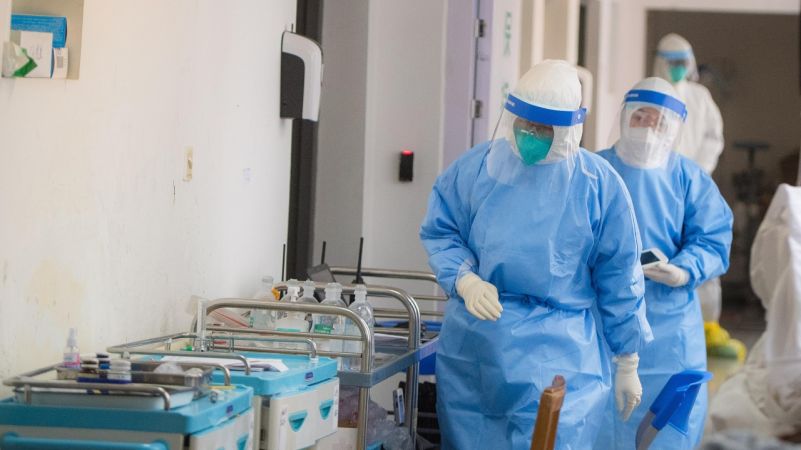
Mongolia reported 362 new cases of COVID-19 www.akipress.com
Mongolia reported 362 new cases of COVID-19 infection for the past 24 hours.
203 of them were confirmed in Ulaanbaatar and 159 cases were confirmed in regions.
No linked deaths were reported in the country in 24 hours.
The death toll of Mongolia remains 2,123.
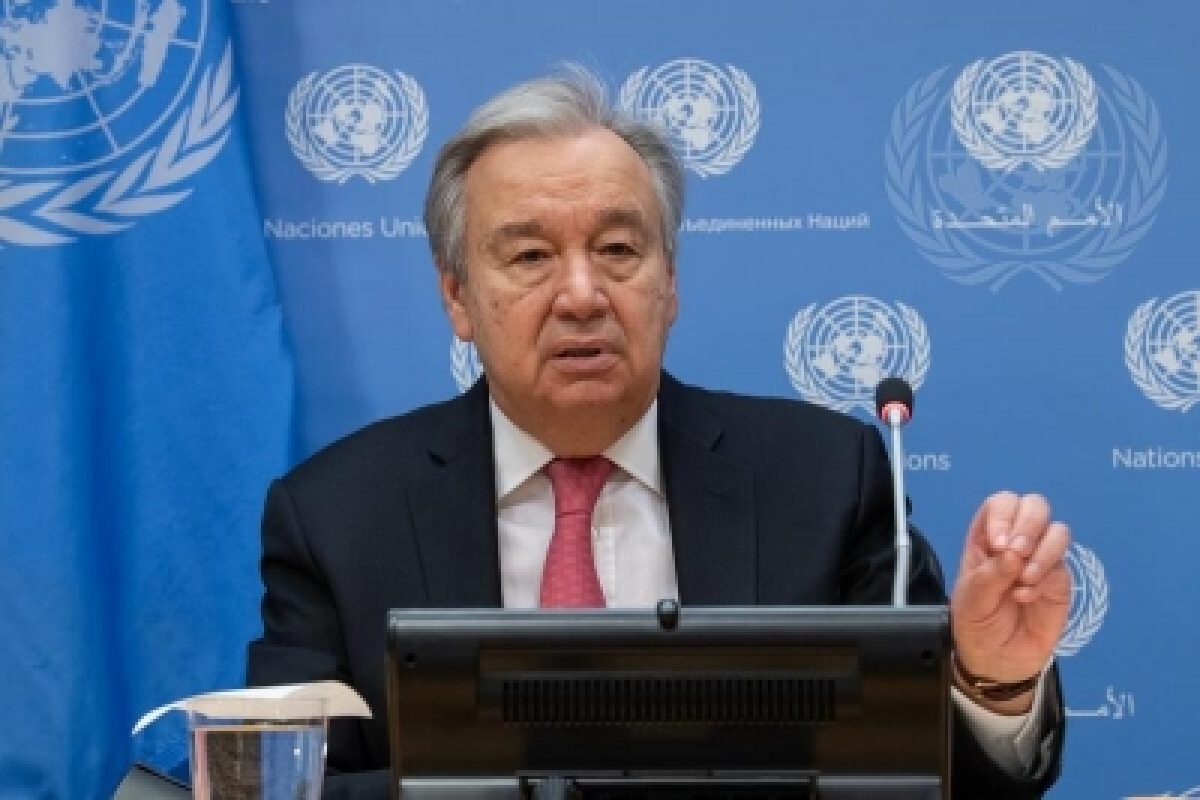
António Guterres: Mongolia plays an important role in ensuring peace and security in the region www.montsame.mn
Today, Minister for Foreign Affairs B.Battsetseg has received UN Secretary-General António Guterres, who is visiting Mongolia on 8-11.
Following the meeting, they held press briefing.
At the press briefing, Minister B.Battsetseg said, “This visit of UN Secretary-General António Guterres, which coincides with the 20th anniversary of the first deployment of Mongolian peacekeepers to UN peacekeeping operations and the 30th anniversary of Mongolia’s declaration of its territory a nuclear-weapon-free zone, is a sign of appreciation for the contribution of our country to strengthening international peace and security.
Mongolia is a democratic country that respects human rights and considers that women should have equal rights without discrimination. In this sense, our country supports the call to increase the number of female personnel participating in peacekeeping operations to 15 percent in accordance with UN Security Council Resolution 1325 on Women, Peace and Security, and is pursuing a policy to achieve this goal by 2027.
In 1992, Mongolia declared its territory a nuclear weapon-free zone. I would like to emphasize that the significance of Mongolia’s nuclear-weapon-free status is growing more at a time that international peace and security are strained.
In December, 2021 Mongolia acceded to the Treaty on the Prohibition of Nuclear Weapons. Our country aspires to continue its contribution to the efforts of the international community to prevent the spread of nuclear weapons.”
“…Mongolia considers that the goals and activities put forward by António Guterres in his speech ‘Our Common Goals’ are timely and crucial for strengthening multilateral cooperation aimed at intensifying the implementation of development goals and programs.
Mongolia will continue to cooperate with the United Nations to strengthen and develop the International Think Tank for Landlocked Developing Countries, which was initiated and established by our country, as a knowledge and innovation center, which will give effective support to the implementation of the Vienna Programme of Action and the 2030 Sustainable Development Agenda.”
“Mongolia will closely cooperate with the UN in the areas of key priorities: human development and well-being; green, inclusive and sustainable growth; and people-centred governance, the rule of law, and human rights within the framework of the UN Sustainable Development Cooperation Framework (UNSDCF) for Mongolia 2023-2027 signed by the Government of Mongolia and the United Nations in May, 2022.
Particularly, we believe that the UN’s support will play an important role to achieve the goals of our country to reform education, become a ‘digital nation’, and make renewable energy the main energy supply.”
At the press briefing, UN Secretary-General António Guterres expressed his sincere gratitude to all the peacekeepers of Mongolia for their service in the most difficult field of UN Peacekeeping operations. He also thanked Mongolia for playing a leading role in the implementation of the ‘Women, Peace and Security’ initiative, which shows Mongolia’s contribution, leadership, solidarity and consistent efforts to ensure gender equality—a common global goal.
He said, “Mongolia's support to the multilateral mechanisms is not limited by its contribution to UN Peacekeeping. Mongolia’s declaration of its territory as a nuclear-weapon-free zone demonstrates its policy of non-proliferation and disarmament to the international community. I believe that other countries will follow Mongolia’s example in order to make the world free from nuclear weapons.
Mongolia plays an important role in ensuring peace and security in the region, which is clearly proven by its Ulaanbaatar Dialogue Initiative on North-East Asian Security.”
“…Mongolia’s food security has been affected by many years of drought, and about 77 percent of its total territory has been affected by desertification. To cope with these challenges, the Government of Mongolia is working hard to combat climate change and desertification. In this frame, the country is implementing initiatives including ‘One Billion Trees’. We praise Mongolia's example in adapting to climate change through the implementation of sustainable management of natural resources. As Mongolia has large renewable energy resource that can supply not only itself but also other countries, it can become a leader in the field of renewable energy. I hope that Mongolia is able to create economic opportunities aside of ensuring energy security.”
“Despite being landlocked, Mongolia's creative foreign policy that prioritizes dialogue and cooperation serves as a bridge between countries and supports to forward sustainable development.”
In the conclusion of his speech, Mr. António Guterres expressed gratitude to Mongolia for its contribution to the activities of the United Nations, and said that even further the country can count on the UN’s support in the areas of peace, human rights and sustainable development.
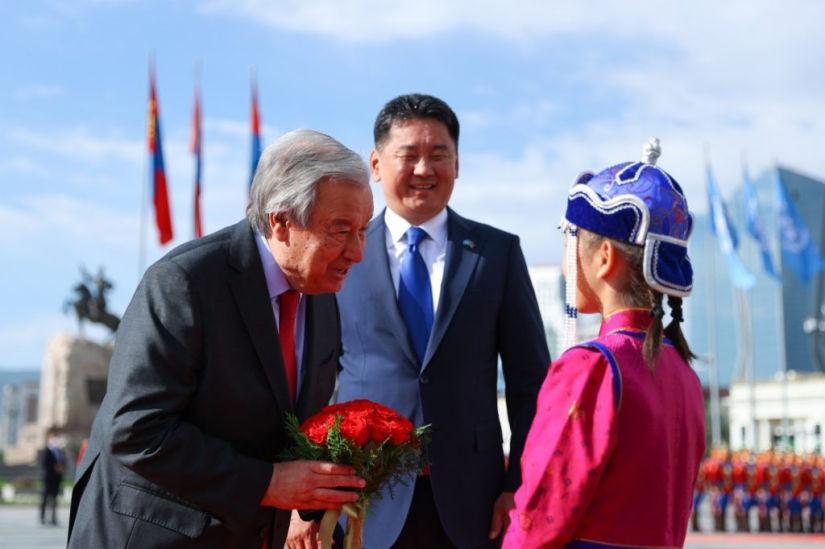
UN Secretary-General arrives in Mongolia www.montsame.mn
UN Secretary-General António Guterres today arrived in Ulaanbaatar, Mongolia for his 3-day visit.
The Secretary-General was welcomed at Chinggis Khaan International airport by Minister of Foreign Affairs of Mongolia B.Battsetseg.
Within the framework of his visit, the UN Secretary-General will pay a courtesy call on President U.Khurelsukh and hold meetings with Speaker of the State Great Khural G.Zandanshatar, Prime Minister L.Oyun-Erdene and Foreign Minister B.Battsetseg. Moreover, he will take part in a tree planting ceremony to recognize the ‘One Billion Trees’ initiative and learn about Mongolia’s culture and traditions.
It is the first visit by the UN Secretary-General to Mongolia since Ban Ki-moon’s visit in 2009.
- «
- 1
- 2
- 3
- 4
- 5
- 6
- 7
- 8
- 9
- 10
- 11
- 12
- 13
- 14
- 15
- 16
- 17
- 18
- 19
- 20
- 21
- 22
- 23
- 24
- 25
- 26
- 27
- 28
- 29
- 30
- 31
- 32
- 33
- 34
- 35
- 36
- 37
- 38
- 39
- 40
- 41
- 42
- 43
- 44
- 45
- 46
- 47
- 48
- 49
- 50
- 51
- 52
- 53
- 54
- 55
- 56
- 57
- 58
- 59
- 60
- 61
- 62
- 63
- 64
- 65
- 66
- 67
- 68
- 69
- 70
- 71
- 72
- 73
- 74
- 75
- 76
- 77
- 78
- 79
- 80
- 81
- 82
- 83
- 84
- 85
- 86
- 87
- 88
- 89
- 90
- 91
- 92
- 93
- 94
- 95
- 96
- 97
- 98
- 99
- 100
- 101
- 102
- 103
- 104
- 105
- 106
- 107
- 108
- 109
- 110
- 111
- 112
- 113
- 114
- 115
- 116
- 117
- 118
- 119
- 120
- 121
- 122
- 123
- 124
- 125
- 126
- 127
- 128
- 129
- 130
- 131
- 132
- 133
- 134
- 135
- 136
- 137
- 138
- 139
- 140
- 141
- 142
- 143
- 144
- 145
- 146
- 147
- 148
- 149
- 150
- 151
- 152
- 153
- 154
- 155
- 156
- 157
- 158
- 159
- 160
- 161
- 162
- 163
- 164
- 165
- 166
- 167
- 168
- 169
- 170
- 171
- 172
- 173
- 174
- 175
- 176
- 177
- 178
- 179
- 180
- 181
- 182
- 183
- 184
- 185
- 186
- 187
- 188
- 189
- 190
- 191
- 192
- 193
- 194
- 195
- 196
- 197
- 198
- 199
- 200
- 201
- 202
- 203
- 204
- 205
- 206
- 207
- 208
- 209
- 210
- 211
- 212
- 213
- 214
- 215
- 216
- 217
- 218
- 219
- 220
- 221
- 222
- 223
- 224
- 225
- 226
- 227
- 228
- 229
- 230
- 231
- 232
- 233
- 234
- 235
- 236
- 237
- 238
- 239
- 240
- 241
- 242
- 243
- 244
- 245
- 246
- 247
- 248
- 249
- 250
- 251
- 252
- 253
- 254
- 255
- 256
- 257
- 258
- 259
- 260
- 261
- 262
- 263
- 264
- 265
- 266
- 267
- 268
- 269
- 270
- 271
- 272
- 273
- 274
- 275
- 276
- 277
- 278
- 279
- 280
- 281
- 282
- 283
- 284
- 285
- 286
- 287
- 288
- 289
- 290
- 291
- 292
- 293
- 294
- 295
- 296
- 297
- 298
- 299
- 300
- 301
- 302
- 303
- 304
- 305
- 306
- 307
- 308
- 309
- 310
- 311
- 312
- 313
- 314
- 315
- 316
- 317
- 318
- 319
- 320
- 321
- 322
- 323
- 324
- 325
- 326
- 327
- 328
- 329
- 330
- 331
- 332
- 333
- 334
- 335
- 336
- 337
- 338
- 339
- 340
- 341
- 342
- 343
- 344
- 345
- 346
- 347
- 348
- 349
- 350
- 351
- 352
- 353
- 354
- 355
- 356
- 357
- 358
- 359
- 360
- 361
- 362
- 363
- 364
- 365
- 366
- 367
- 368
- 369
- 370
- 371
- 372
- 373
- 374
- 375
- 376
- 377
- 378
- 379
- 380
- 381
- 382
- 383
- 384
- 385
- 386
- 387
- 388
- 389
- 390
- 391
- 392
- 393
- 394
- 395
- 396
- 397
- 398
- 399
- 400
- 401
- 402
- 403
- 404
- 405
- 406
- 407
- 408
- 409
- 410
- 411
- 412
- 413
- 414
- 415
- 416
- 417
- 418
- 419
- 420
- 421
- 422
- 423
- 424
- 425
- 426
- 427
- 428
- 429
- 430
- 431
- 432
- 433
- 434
- 435
- 436
- 437
- 438
- 439
- 440
- 441
- 442
- 443
- 444
- 445
- 446
- 447
- 448
- 449
- 450
- 451
- 452
- 453
- 454
- 455
- 456
- 457
- 458
- 459
- 460
- 461
- 462
- 463
- 464
- 465
- 466
- 467
- 468
- 469
- 470
- 471
- 472
- 473
- 474
- 475
- 476
- 477
- 478
- 479
- 480
- 481
- 482
- 483
- 484
- 485
- 486
- 487
- 488
- 489
- 490
- 491
- 492
- 493
- 494
- 495
- 496
- 497
- 498
- 499
- 500
- 501
- 502
- 503
- 504
- 505
- 506
- 507
- 508
- 509
- 510
- 511
- 512
- 513
- 514
- 515
- 516
- 517
- 518
- 519
- 520
- 521
- 522
- 523
- 524
- 525
- 526
- 527
- 528
- 529
- 530
- 531
- 532
- 533
- 534
- 535
- 536
- 537
- 538
- 539
- 540
- 541
- 542
- 543
- 544
- 545
- 546
- 547
- 548
- 549
- 550
- 551
- 552
- 553
- 554
- 555
- 556
- 557
- 558
- 559
- 560
- 561
- 562
- 563
- 564
- 565
- 566
- 567
- 568
- 569
- 570
- 571
- 572
- 573
- 574
- 575
- 576
- 577
- 578
- 579
- 580
- 581
- 582
- 583
- 584
- 585
- 586
- 587
- 588
- 589
- 590
- 591
- 592
- 593
- 594
- 595
- 596
- 597
- 598
- 599
- 600
- 601
- 602
- 603
- 604
- 605
- 606
- 607
- 608
- 609
- 610
- 611
- 612
- 613
- 614
- 615
- 616
- 617
- 618
- 619
- 620
- 621
- 622
- 623
- 624
- 625
- 626
- 627
- 628
- 629
- 630
- 631
- 632
- 633
- 634
- 635
- 636
- 637
- 638
- 639
- 640
- 641
- 642
- 643
- 644
- 645
- 646
- 647
- 648
- 649
- 650
- 651
- 652
- 653
- 654
- 655
- 656
- 657
- 658
- 659
- 660
- 661
- 662
- 663
- 664
- 665
- 666
- 667
- 668
- 669
- 670
- 671
- 672
- 673
- 674
- 675
- 676
- 677
- 678
- 679
- 680
- 681
- 682
- 683
- 684
- 685
- 686
- 687
- 688
- 689
- 690
- 691
- 692
- 693
- 694
- 695
- 696
- 697
- 698
- 699
- 700
- 701
- 702
- 703
- 704
- 705
- 706
- 707
- 708
- 709
- 710
- 711
- 712
- 713
- 714
- 715
- 716
- 717
- 718
- 719
- 720
- 721
- 722
- 723
- 724
- 725
- 726
- 727
- 728
- 729
- 730
- 731
- 732
- 733
- 734
- 735
- 736
- 737
- 738
- 739
- 740
- 741
- 742
- 743
- 744
- 745
- 746
- 747
- 748
- 749
- 750
- 751
- 752
- 753
- 754
- 755
- 756
- 757
- 758
- 759
- 760
- 761
- 762
- 763
- 764
- 765
- 766
- 767
- 768
- 769
- 770
- 771
- 772
- 773
- 774
- 775
- 776
- 777
- 778
- 779
- 780
- 781
- 782
- 783
- 784
- 785
- 786
- 787
- 788
- 789
- 790
- 791
- 792
- 793
- 794
- 795
- 796
- 797
- 798
- 799
- 800
- 801
- 802
- 803
- 804
- 805
- 806
- 807
- 808
- 809
- 810
- 811
- 812
- 813
- 814
- 815
- 816
- 817
- 818
- 819
- 820
- 821
- 822
- 823
- 824
- 825
- 826
- 827
- 828
- 829
- 830
- 831
- 832
- 833
- 834
- 835
- 836
- 837
- 838
- 839
- 840
- 841
- 842
- 843
- 844
- 845
- 846
- 847
- 848
- 849
- 850
- 851
- 852
- 853
- 854
- 855
- 856
- 857
- 858
- 859
- 860
- 861
- 862
- 863
- 864
- 865
- 866
- 867
- 868
- 869
- 870
- 871
- 872
- 873
- 874
- 875
- 876
- 877
- 878
- 879
- 880
- 881
- 882
- 883
- 884
- 885
- 886
- 887
- 888
- 889
- 890
- 891
- 892
- 893
- 894
- 895
- 896
- 897
- 898
- 899
- 900
- 901
- 902
- 903
- 904
- 905
- 906
- 907
- 908
- 909
- 910
- 911
- 912
- 913
- 914
- 915
- 916
- 917
- 918
- 919
- 920
- 921
- 922
- 923
- 924
- 925
- 926
- 927
- 928
- 929
- 930
- 931
- 932
- 933
- 934
- 935
- 936
- 937
- 938
- 939
- 940
- 941
- 942
- 943
- 944
- 945
- 946
- 947
- 948
- 949
- 950
- 951
- 952
- 953
- 954
- 955
- 956
- 957
- 958
- 959
- 960
- 961
- 962
- 963
- 964
- 965
- 966
- 967
- 968
- 969
- 970
- 971
- 972
- 973
- 974
- 975
- 976
- 977
- 978
- 979
- 980
- 981
- 982
- 983
- 984
- 985
- 986
- 987
- 988
- 989
- 990
- 991
- 992
- 993
- 994
- 995
- 996
- 997
- 998
- 999
- 1000
- 1001
- 1002
- 1003
- 1004
- 1005
- 1006
- 1007
- 1008
- 1009
- 1010
- 1011
- 1012
- 1013
- 1014
- 1015
- 1016
- 1017
- 1018
- 1019
- 1020
- 1021
- 1022
- 1023
- 1024
- 1025
- 1026
- 1027
- 1028
- 1029
- 1030
- 1031
- 1032
- 1033
- 1034
- 1035
- 1036
- 1037
- 1038
- 1039
- 1040
- 1041
- 1042
- 1043
- 1044
- 1045
- 1046
- 1047
- 1048
- 1049
- 1050
- 1051
- 1052
- 1053
- 1054
- 1055
- 1056
- 1057
- 1058
- 1059
- 1060
- 1061
- 1062
- 1063
- 1064
- 1065
- 1066
- 1067
- 1068
- 1069
- 1070
- 1071
- 1072
- 1073
- 1074
- 1075
- 1076
- 1077
- 1078
- 1079
- 1080
- 1081
- 1082
- 1083
- 1084
- 1085
- 1086
- 1087
- 1088
- 1089
- 1090
- 1091
- 1092
- 1093
- 1094
- 1095
- 1096
- 1097
- 1098
- 1099
- 1100
- 1101
- 1102
- 1103
- 1104
- 1105
- 1106
- 1107
- 1108
- 1109
- 1110
- 1111
- 1112
- 1113
- 1114
- 1115
- 1116
- 1117
- 1118
- 1119
- 1120
- 1121
- 1122
- 1123
- 1124
- 1125
- 1126
- 1127
- 1128
- 1129
- 1130
- 1131
- 1132
- 1133
- 1134
- 1135
- 1136
- 1137
- 1138
- 1139
- 1140
- 1141
- 1142
- 1143
- 1144
- 1145
- 1146
- 1147
- 1148
- 1149
- 1150
- 1151
- 1152
- 1153
- 1154
- 1155
- 1156
- 1157
- 1158
- 1159
- 1160
- 1161
- 1162
- 1163
- 1164
- 1165
- 1166
- 1167
- 1168
- 1169
- 1170
- 1171
- 1172
- 1173
- 1174
- 1175
- 1176
- 1177
- 1178
- 1179
- 1180
- 1181
- 1182
- 1183
- 1184
- 1185
- 1186
- 1187
- 1188
- 1189
- 1190
- 1191
- 1192
- 1193
- 1194
- 1195
- 1196
- 1197
- 1198
- 1199
- 1200
- 1201
- 1202
- 1203
- 1204
- 1205
- 1206
- 1207
- 1208
- 1209
- 1210
- 1211
- 1212
- 1213
- 1214
- 1215
- 1216
- 1217
- 1218
- 1219
- 1220
- 1221
- 1222
- 1223
- 1224
- 1225
- 1226
- 1227
- 1228
- 1229
- 1230
- 1231
- 1232
- 1233
- 1234
- 1235
- 1236
- 1237
- 1238
- 1239
- 1240
- 1241
- 1242
- 1243
- 1244
- 1245
- 1246
- 1247
- 1248
- 1249
- 1250
- 1251
- 1252
- 1253
- 1254
- 1255
- 1256
- 1257
- 1258
- 1259
- 1260
- 1261
- 1262
- 1263
- 1264
- 1265
- 1266
- 1267
- 1268
- 1269
- 1270
- 1271
- 1272
- 1273
- 1274
- 1275
- 1276
- 1277
- 1278
- 1279
- 1280
- 1281
- 1282
- 1283
- 1284
- 1285
- 1286
- 1287
- 1288
- 1289
- 1290
- 1291
- 1292
- 1293
- 1294
- 1295
- 1296
- 1297
- 1298
- 1299
- 1300
- 1301
- 1302
- 1303
- 1304
- 1305
- 1306
- 1307
- 1308
- 1309
- 1310
- 1311
- 1312
- 1313
- 1314
- 1315
- 1316
- 1317
- 1318
- 1319
- 1320
- 1321
- 1322
- 1323
- 1324
- 1325
- 1326
- 1327
- 1328
- 1329
- 1330
- 1331
- 1332
- 1333
- 1334
- 1335
- 1336
- 1337
- 1338
- 1339
- 1340
- 1341
- 1342
- 1343
- 1344
- 1345
- 1346
- 1347
- 1348
- 1349
- 1350
- 1351
- 1352
- 1353
- 1354
- 1355
- 1356
- 1357
- 1358
- 1359
- 1360
- 1361
- 1362
- 1363
- 1364
- 1365
- 1366
- 1367
- 1368
- 1369
- 1370
- 1371
- 1372
- 1373
- 1374
- 1375
- 1376
- 1377
- 1378
- 1379
- 1380
- 1381
- 1382
- 1383
- 1384
- 1385
- 1386
- 1387
- 1388
- 1389
- 1390
- 1391
- 1392
- 1393
- 1394
- 1395
- 1396
- 1397
- 1398
- 1399
- 1400
- 1401
- 1402
- 1403
- 1404
- 1405
- 1406
- 1407
- 1408
- 1409
- 1410
- 1411
- 1412
- 1413
- 1414
- 1415
- 1416
- 1417
- 1418
- 1419
- 1420
- 1421
- 1422
- 1423
- 1424
- 1425
- 1426
- 1427
- 1428
- 1429
- 1430
- 1431
- 1432
- 1433
- 1434
- 1435
- 1436
- 1437
- 1438
- 1439
- 1440
- 1441
- 1442
- 1443
- 1444
- 1445
- 1446
- 1447
- 1448
- 1449
- 1450
- 1451
- 1452
- 1453
- 1454
- 1455
- 1456
- 1457
- 1458
- 1459
- 1460
- 1461
- 1462
- 1463
- 1464
- 1465
- 1466
- 1467
- 1468
- 1469
- 1470
- 1471
- 1472
- 1473
- 1474
- 1475
- 1476
- 1477
- 1478
- 1479
- 1480
- 1481
- 1482
- 1483
- 1484
- 1485
- 1486
- 1487
- 1488
- 1489
- 1490
- 1491
- 1492
- 1493
- 1494
- 1495
- 1496
- 1497
- 1498
- 1499
- 1500
- 1501
- 1502
- 1503
- 1504
- 1505
- 1506
- 1507
- 1508
- 1509
- 1510
- 1511
- 1512
- 1513
- 1514
- 1515
- 1516
- 1517
- 1518
- 1519
- 1520
- 1521
- 1522
- 1523
- 1524
- 1525
- 1526
- 1527
- 1528
- 1529
- 1530
- 1531
- 1532
- 1533
- 1534
- 1535
- 1536
- 1537
- 1538
- 1539
- 1540
- 1541
- 1542
- 1543
- 1544
- 1545
- 1546
- 1547
- 1548
- 1549
- 1550
- 1551
- 1552
- 1553
- 1554
- 1555
- 1556
- 1557
- 1558
- 1559
- 1560
- 1561
- 1562
- 1563
- 1564
- 1565
- 1566
- 1567
- 1568
- 1569
- 1570
- 1571
- 1572
- 1573
- 1574
- 1575
- 1576
- 1577
- 1578
- 1579
- 1580
- 1581
- 1582
- 1583
- 1584
- 1585
- 1586
- 1587
- 1588
- 1589
- 1590
- 1591
- 1592
- 1593
- 1594
- 1595
- 1596
- 1597
- 1598
- 1599
- 1600
- 1601
- 1602
- 1603
- 1604
- 1605
- 1606
- 1607
- 1608
- 1609
- 1610
- 1611
- 1612
- 1613
- 1614
- 1615
- 1616
- 1617
- 1618
- 1619
- 1620
- 1621
- 1622
- 1623
- 1624
- 1625
- 1626
- 1627
- 1628
- 1629
- 1630
- 1631
- 1632
- 1633
- 1634
- 1635
- 1636
- 1637
- 1638
- 1639
- 1640
- 1641
- 1642
- 1643
- 1644
- 1645
- 1646
- 1647
- 1648
- 1649
- 1650
- 1651
- 1652
- 1653
- 1654
- 1655
- 1656
- 1657
- 1658
- 1659
- 1660
- 1661
- 1662
- 1663
- 1664
- 1665
- 1666
- 1667
- 1668
- 1669
- 1670
- 1671
- 1672
- 1673
- 1674
- 1675
- 1676
- 1677
- 1678
- 1679
- 1680
- 1681
- 1682
- 1683
- 1684
- 1685
- 1686
- 1687
- 1688
- 1689
- 1690
- 1691
- 1692
- 1693
- 1694
- 1695
- 1696
- 1697
- 1698
- 1699
- 1700
- 1701
- 1702
- 1703
- 1704
- 1705
- 1706
- 1707
- 1708
- 1709
- 1710
- 1711
- 1712
- 1713
- 1714
- 1715
- 1716
- 1717
- 1718
- 1719
- 1720
- 1721
- 1722
- 1723
- 1724
- 1725
- 1726
- 1727
- »






